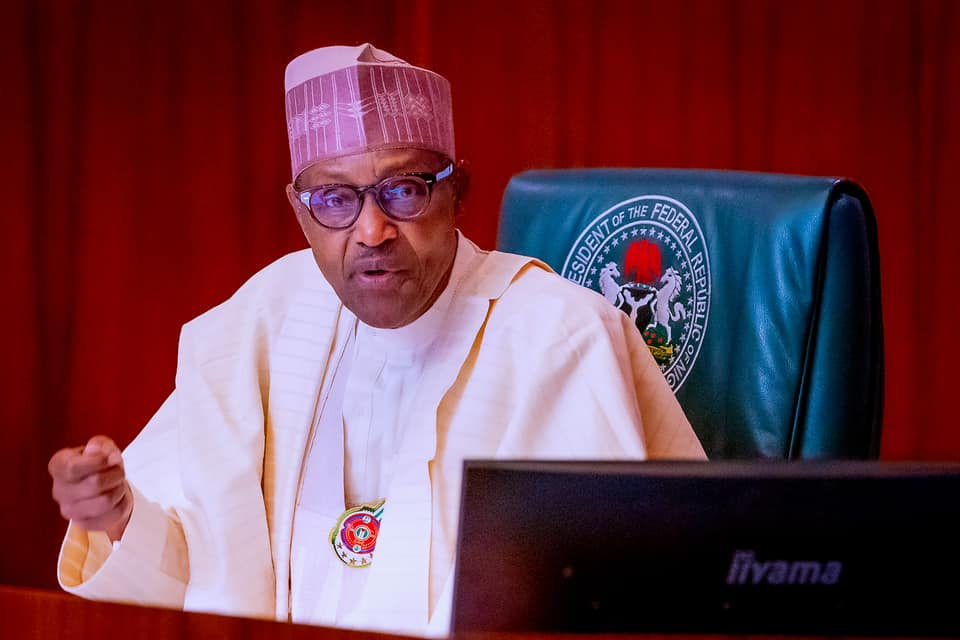Far-reaching constitutional amendment bills
For the Ninth National Assembly, last week was a watershed in this dispensation, as a result of the far-reaching constitutional amendment bills passed, in order to take care of many gray areas in the 1999 Constitution of the Federal Republic of Nigeria (amended). Many of the 68 bills voted upon are subjects of controversies, including […]

President Muhammadu Buhari
For the Ninth National Assembly, last week was a watershed in this dispensation, as a result of the far-reaching constitutional amendment bills passed, in order to take care of many gray areas in the 1999 Constitution of the Federal Republic of Nigeria (amended). Many of the 68 bills voted upon are subjects of controversies, including the call for the devolution of power and the running of the States in line with the principles of true Federalism. Though certain aspects which ought to have been passed into law were not approved, the majority of the bills passed were in line with the yearnings of the people.
Some of the commendable amendments include the bills for financial autonomy for local governments, administrative autonomy for local governments, financial independence for State Houses of Assembly and State Judiciary, and fair hearing in the process of recommendation of removal of judicial officers by the State Judicial Service Commission. These bills touch the sore points in the second and third tiers of government – states and local governments. In spite of the claim that democracy is about separation of powers between the Executive, Legislature and Judiciary, the Executive, symbolized by state governors, intimidate and frustrate the other two arms of government. Local government, Houses of Assembly and the Judiciary in many states lack both political and financial autonomy, so they operate in line with the whims and caprices of state governors. If these bills are passed into the law, and the constitution amended accordingly, the stranglehold of governors on the other arms of government will be broken and that will further enrich the nation’s democracy.
Furthermore, of six bills on the much-talked about devolution of power, five of them were passed while one was rejected. Among those passed are bills to remove airports from Exclusive Legislative List to the Concurrent Legislative List; to move Fingerprints, Identification and Criminal Records from the Exclusive Legislative List to the Concurrent Legislative List; to delete prisons in the Exclusive Legislative List and re-designate it as Correctional Services in the Concurrent Legislative List; to move Railway from the Exclusive Legislative List to Concurrent Legislative List; and to allow states to generate, transmit and distribute electricity in areas covered by the national grid. All these passed bills would facilitate development. For instance, putting rail transport under concurrent list would encourage states to invest in local trains that could connect cities within states and ease public transportation. Also, putting electricity under the Concurrent list will definitely unbundle electricity generation and distribution, as decades of experience with centralized generation and distribution from the national grid is seen as the impediment to effective power supply in the country.
The Bill to establish the Office of the Attorney-General of the Federation and of the State separate from the Office of the Minister of Justice or Commissioners of Justice of the state, to make Offices of Attorneys-General independent and insulated from partisanship is also a right step to take. From the country’s experience since 1999, having the Minister of Justice as Attorney-General has led to overbearing political influence on the Ministry of Justice. The Attorney-General of the Federation must be seen as the chief law officer of the country, the conscience of the Nigerian nation, not one who could be swayed by the tide of politics to the detriment of fairness, equity and justice.
Other bills worth commending include that which has to do with the termination of tenure of elected officials after change of political party, independent candidacy in elections, free, compulsory and basic education, and that of food security. If the bill on the change of political party is signed into law, it would halt the immoral tide of politicians winning elections under the umbrella of a political party and cross-carpeting to another party in order to attract certain privileges. Also, the bill on independent candidacy could reduce the desperation among politicians to win the tickets of prominent political parties in order to contest elections. With this bill, politicians would only need to work hard to win the hearts of electorate, if they are going into elections.
However, rejecting the bills on reservation of quota for women and another to establish the National and State Councils of Traditional Rulers to advise the president and governors on matters related to customs, security and public order, was strange because the under-representation of women in elective positions in Nigeria shows how immature the country’s democracy is. Gender balance and inclusion have taken the centre stage in many parts of the world, and Nigeria should not be an exception. Also, traditional rulers need to be given statutory roles in the constitution. This issue has been canvassed over the years.
We call on the National Assembly to the tie loose ends in the amendment bills, to ensure they are not rejected by the president. Over the years, such hard work by the National Assembly had been nullified because presidents failed to sign constitutional amendments into law. Let this one be different.
